Why do you write?
I was pegged an expressive analytic in a personality test I took through my company. I know it sounds like an oxymoron, but it’s true. I couldn’t survive without expressing my creative imaginings. Yet, I’m a retired, introverted actuary who receives her energy from being alone in her home office, spewing words into my laptop to expand my story ideas.
Do you have a theme, message, or goal for your books?
I write from a Christian world view.
Through my romances, I hope to entertain, spur laughter, and touch hearts. My heroes and heroines are Christians or become Christians and do what Christians do, such as enjoy a quiet time with God, read the Bible, and make mistakes.
From my blogs posts and my published book on writing, my passion is to share what I learn about writing principles and techniques with others.
My purpose in re-self-publishing my two books of Christian allegories (second book releasing soon) is to share the funky stories I wrote to explain to myself Biblical principles I’d heard or read as a new Christian.
The speculative fiction I’m working on takes place sixteen months after the rapture. This two-book series grabbed me and stretched me. My hope is it will do the same for others.
How long have you been writing?
Does my cowboy story—a whole paragraph—count? I was nine. Since then, I stored many uncompleted manuscripts under my bed. Then came the two books of short allegories I self-published before the self-publishing craze. After an agent signed me and publishers rejected four romances, I received my first contract at age sixty-four.
Tell us about one of your greatest joy(s) in your writing career.
I learned a colleague accepted Christ after reading the first allegory I wrote. After publishers rejected four completed manuscripts, I sat in a workshop led by an agent. He said it takes writing four completed manuscripts to learn to write, and usually the fifth one receives a contract. At that time, I was working on my fifth manuscript, and it was the novel that received a contract. The joy was realizing those rejected manuscripts had great worth. They prepared me to write a novel that merited a contract.
Tell us about one of your darkest moment(s) in your writing career.
Before I received my first contract, I’d labored many months on a manuscript. I went through the first pages one more time and changed a word or two. After I sent it to my agent, I looked over the first pages again. To my horror, the word shift was missing the f. I shot off an email to my agent. She emailed all was fine. She and the editor enjoyed a chuckle. I realized agents and editors weren’t statues whose alabaster fingers were ready to chop my manuscripts to pieces.
Rejection is a common experience for writers. How do you overcome rejection? How has rejection shaped you or your career?
I had worked about a year on each of my four rejected manuscripts. But just like for the contests I entered, rejections or low scores never depressed me or made be angry. I entered the contests for the feedback and was happy to have it. True, I sent manuscripts hoping for a contract, but I took in both the good and the need-improvement comments to learn to do better on the next manuscript. Editors told me in their rejections they liked my ideas. Some invited me to submit another project. I learned I naturally have good story ideas, but I needed to learn how to write them into a readable story.
In what ways has God led you to mentor other writers? Were you surprised when a certain skill or connection led to mentoring opportunities?
God made me to be expressive, but I dislike being chatty on social media. When I knew I had to have a blog, I wrote on how to be creative—something I understood. As I learned writing techniques, I excitedly shared what I’d learned in my blog posts. This fit my gift of teaching. I learn from applications, so I always included lots of examples. This led to presenting writing workshops to writers’ groups, at conferences, and on Zoom.
My blog posts sparked an editor and an agent to encourage me to write a book on writing from my posts. Not wanting to dump blog posts into a book, I took a workshop on how to write a book from blog posts. I wanted to aid beginning writers who had or were starting manuscripts to avoid repeated rejections. I structured the book to help writers transform their manuscripts to shine in thirty days so they could pitch their manuscripts to agents and editors or to self-publish. My surprise came when I asked writing and publishing professionals for endorsements. I hoped for two or three. Nine professional agents, editors, conference directors, award-winning authors, and aspiring writers sent me wonderful endorsements. I believe in that book’s ability to help new writers.
Tell us about a facet of mentoring that particularly excites you.
An editor friend arranged an opportunity for me to teach a four-day, two-hour class to eight participants at a writers conference. I based the class on the teachings in my book on writing. Participants’ “aha” cries thrilled me. One had signed up for a critique. My heart slumped when I saw how far her writing was from workable. I prayed and prayed for guidance to help her without discouraging her away from writing. I poured many hours into the critique. I presented the critique as gently and honestly as I could. She seemed to eagerly accept my suggestions, but I worried discouragement might crush her writing spirit back in her room. The following day during personal writing time, she handed me a revision of her critique’s pages. How joyful she and I were when I told her, she understood what was needed and was on her way to writing a readable story.
What venues/methods have you found most effective for meeting and mentoring writers?
For me, teaching workshops and webinars using slides and many examples works best.
Have you organized or led groups to support writers? (Retreats, ACFW chapters, etc.) How has that experience helped you to mentor writers?
I’ve dreamed of having retreats in our cabin on a lake. I’ve held a few small spiritual and writing retreats so far. I recently retired from a two-year stint as the treasurer for ACFW Virginia. I’ve taught workshops for our monthly webinars and for our conferences.
Have you organized or directed a writers’ conference? Tell us about that experience, and/or share an anecdote that illustrates how you saw writers being mentored and encouraged through the event.
While on the ACFW Virginia chapter’s board, I helped organize two conferences. At two conferences, I held mentor appointments. Not having done much of this type of mentoring, I wondered if I was qualified to help anyone. I prayed. A young woman told me the trouble with an aspect of her story. Immediately, a suggestion came to me and I shared it. She said, “That’s it!” I became more relaxed as we brainstormed together.
If you speak at writers’ groups or conferences, what are some of your favorite topics to speak about?
I enjoy presenting:
- Make a Scene of Your Scene: 4 Improvements to Make Your Scene Stand Out
- Help Your Reader Commit Identity Theft with Your Character: Learning to Write in Deep Point of View
- Make Your First Five Pages Shine: Avoid Mistakes New Writers Make
- For Whom the Edits Toil: 7 Edits to Create Reader-Charming Paragraphs
- Share Your Writing Journey as Part of Your Marketing Plan
What advice do you have for writers as we interact with our peers?
Find a critique group that works for you. I suggest you keep the group small, or you’ll spend more time critiquing than writing. Work on thickening your skin so you can hear suggestions. I say to myself, “I may not agree with a partner’s (or judge’s) suggestion, but if this sentence stopped the reader from reading on, I need to discern whether:
- the sentence (paragraph) is necessary or
- I can improve it.”
What can we do to be better supporters and mentors of our fellow writers?
- Share titles of writing books we found helpful.
- Write honest book reviews.
- Share writing tips that improved our writing.
- When critiquing, speak truth in a way that is non-threatening.
- Help fellow writers understand we are God’s co-author. (See Allen Arnold’s book below.)
Do you have a favorite resource or two that you recommend to beginning writers?
Tailor Your Fiction Manuscript in Thirty Days by Zoe M. McCarthy
Hooked by Les Edgerton
Do you have a favorite resource or two that you recommend to writers who are struggling with discouragement?
The Story of With: A Better Way to Live, Love, & Create by Allen Arnold
What are common mistakes you see aspiring writer’s make?
- Starting their books in the wrong place.
- What they are imagining is not making it to the page.
- Failing to ground the reader.
- Dumping the backstory they need to know, but the reader doesn’t.
- The protagonist is unlikeable or whiny.
- Misunderstanding the difference between suspense and creating confusion.
- Not writing scenes, and the paragraphs within them, linearly.
What advice can you give aspiring writers that you wished you had gotten, or that you wished you would have heeded?
I wish I had heard the agent’s wisdom earlier that it takes completing four manuscripts to learn to write. I would have been energized in an additional way to write those four manuscripts.
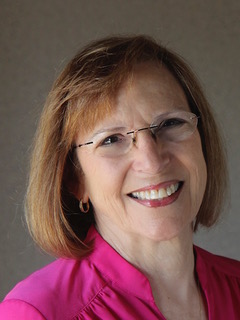
Zoe M. McCarthy is a full-time author and speaker. She has seven contemporary Christian romances involving tenderness and humor. Believing opposites distract, Zoe creates heroes and heroines who learn to embrace their differences. She’s the author of a book of Contemporary Christian allegories. Her non-fiction, Tailor Your Fiction Manuscript in 30 Days, helps writers write their stories or ready their manuscripts for publication. She teaches a community Bible study and writing workshops. Zoe and her husband live in the Blue Ridge Mountains of Virginia. They enjoy canoeing the New River, spending time at their lake cabin, and entertaining their six grandchildren.
Website and Blog: https://zoemmccarthy.com

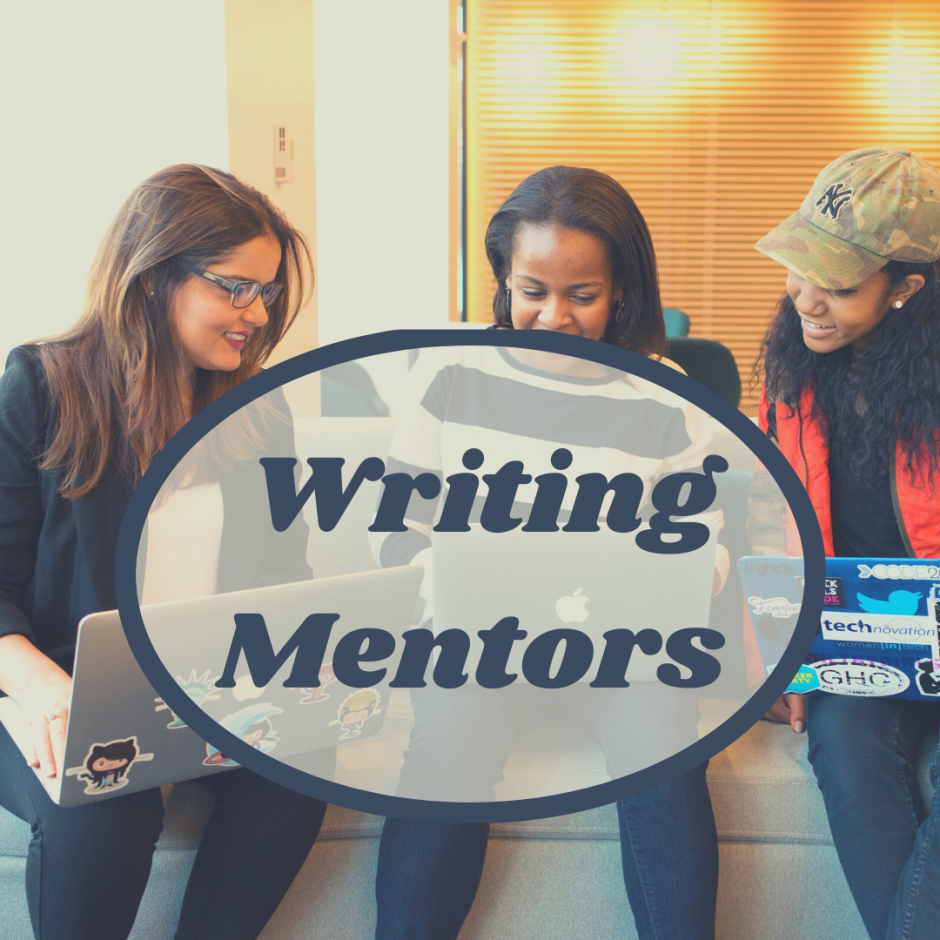
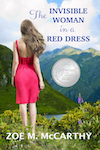

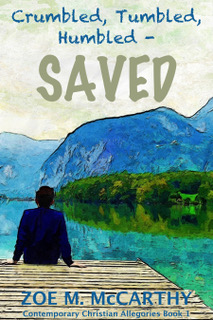
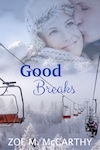

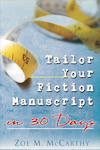

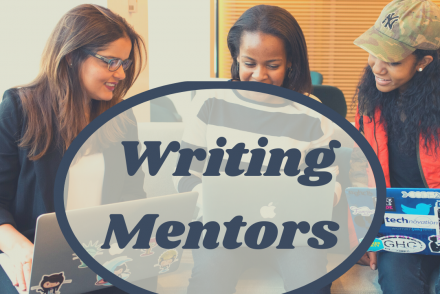


4 Comments
Enjoyed the interview. Zeroed in on the words, “What they are imagining is not making it to the page.”
I’m often asked to look at someone’s manuscript. I can make the comment “confusing”, and yet deep down I know what the author is trying to say. “What you are imagining is not making the page” is the perfect comment”. Then I don’t feel I am criticizing their idea. I appreciate Zoe’s giving back to the writing (and spiritual ) community. Mentors matter.
I’m glad you found something useful, Marcia.
Zoe – I’ve learned so much about effective writing from your book and seminars/workshops. This interview highlights your servant spirit to help other writers excell. Love all your romances too, especially Good Breaks since I love skiing. Looking forward to the speculative fiction series!!
Joanie, I’m so glad you found Tailor Your Manuscript in 30 Days helpful. Thanks.